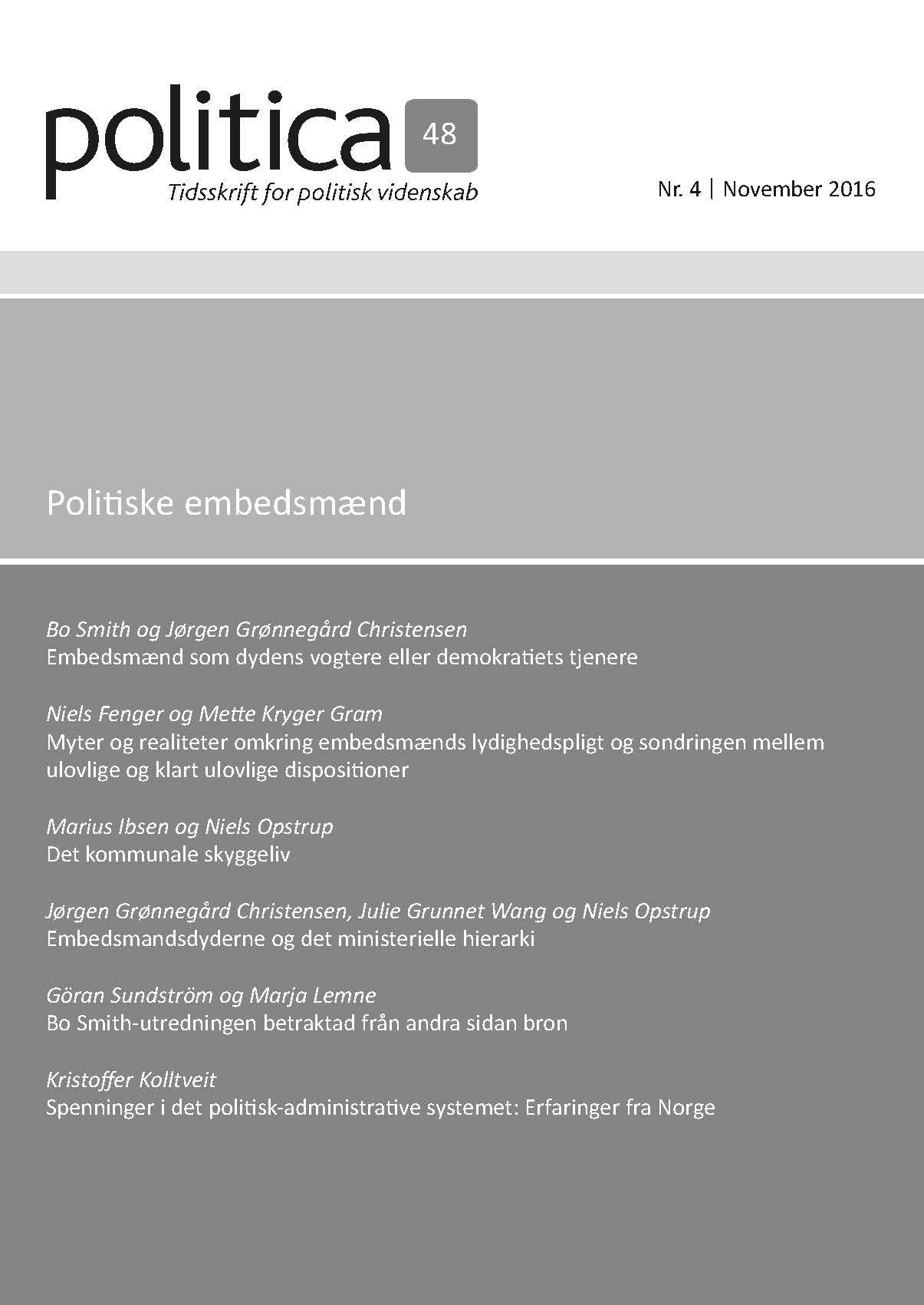Administration and politics in the shadows: Councilors and officers in Danish local government
DOI:
https://doi.org/10.7146/politica.v48i4.131280Resumé
The interaction between politicians and officials has been widely discussed, not least because of a number of scandals, which have been seen as proof of a politicization of the role and behavior of officials. This discussion has only been concerned with central government. But local authorities are responsible for much of the welfare state and they have therefore been almost as bureaucratized as the ministries. In fact they have had their share of scandals. Councils do, however, lead a more quiet life – partly because the press shows less interest; partly because of institutional factors. Local authorities are governed by committees and there is a strong culture of consensus. The mayor is elected for four years and cannot be forced from office. Formally the mayor is just a chairman with limited executive responsibilities. In fact, he/she is often the central decision-maker. Officers see themselves primarily as advisers to politicians, less as classic administrators. Although without formal legal status they are in fact perceived as very strong. Backbench councilors, on the other hand, complain of having lost influence.
Publiceret
Citation/Eksport
Nummer
Sektion
Licens
LicensOphavsretten tilhører Politica. Materialet må ikke bruges eller distribueres i kommercielt øjemed.





